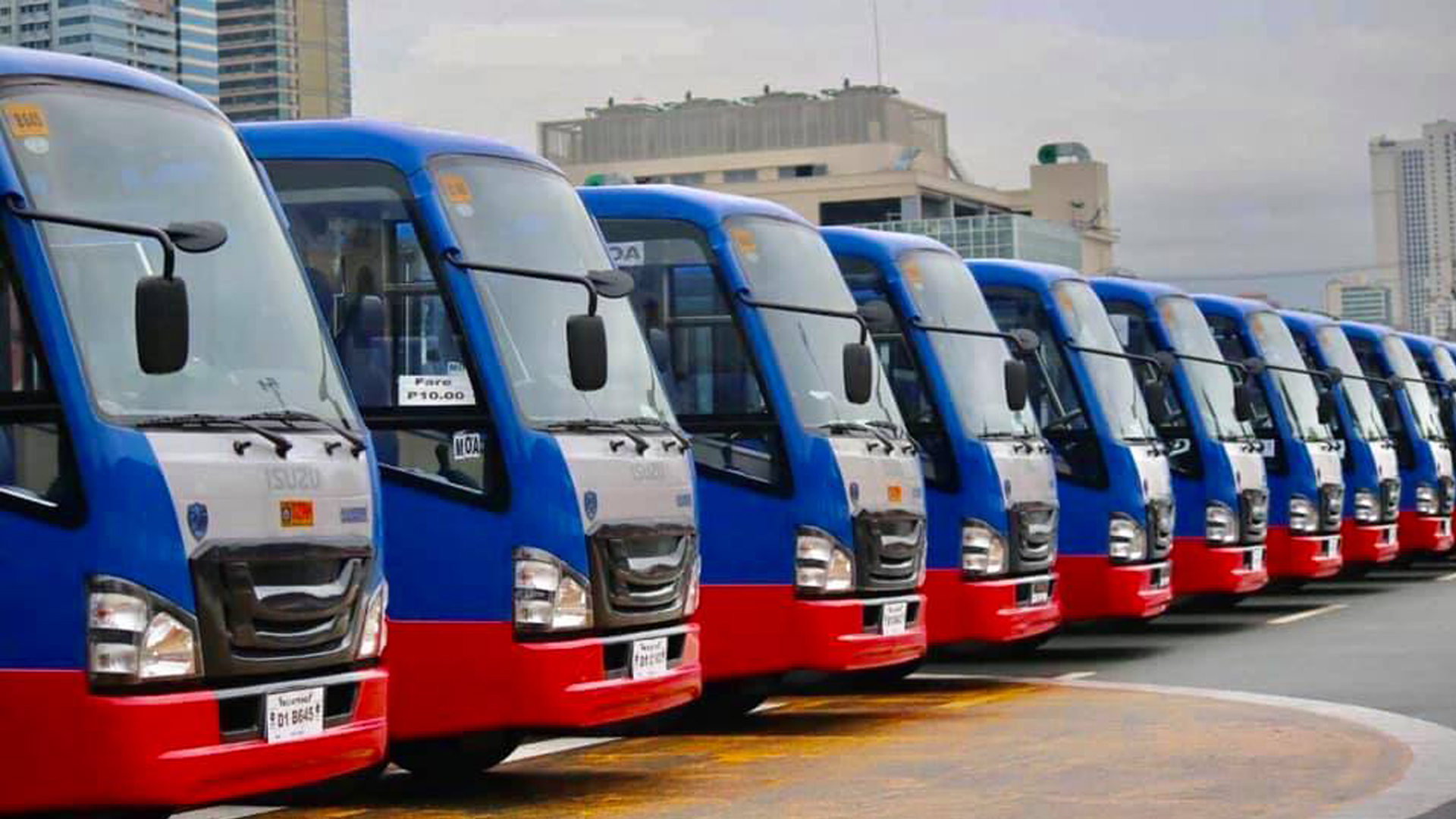Through a promotion rate of 30 pesos for both the load and card, a transport cooperative operating in Las Piñas has provided 25,735 passengers with the means to safely board and ride their solar electric jeepneys along the route of Alabang to Zapote.
Jun Saw, Chairman of South Metro Transport Cooperative (SMTC), said that the limited promotional rate was initiated by their cooperative to educate and usher commuters towards the implementation of cashless transactions amid the pandemic.
“During this time we decided to push for a 100% cashless system to prevent the spread of the virus among public transport,” said Saw. “We used to operate with both cash and card, but by June we started the fully cashless system among our units. But to make it more affordable for our passengers, we removed the payment for the card itself and lowered the minimum load to 30 pesos. So with the promo, you only pay 30 pesos, and you get to have the card with a load of 30 pesos.”
SMTC ran the promo from June 29 to August 3 but has since returned to their original price of 60 pesos which includes the card and thirty pesos load. The “green cards” being sold by the cooperative is issued by Innov8 Green, a subsidiary of Star 8 Green Technology Corporation, the same manufacturer behind the low-carbon units of SMTC.
According to Lino Pastoral, Star8 Fleet Manager and general manager for the implementation of a cashless system among SMTC fleets, the sales from the promo made up more than half of the total amount sold by the cooperative since they began using an Automated Fare Collection System (AFCS) developed by Star8 chief operating officer Nathaniel Kremer in April 2019.
Pastoral added that SMTC made it easier for commuters to purchase the cards by having booths available at the terminal and the city hall of Las Piñas, as well as in designated drop-off points and from the drivers themselves. The cooperative also offers a discount card for senior citizens and persons with disabilities (PWDs).
“We continue to educate the people on how to properly use their green cards and the benefits of going cashless,” said Pastoral. “On the end of the cooperative, it’s not a hassle at all to operate the system. The machines we have equipped our units with not only collects and reads the fare, but records the time in and time out of drivers, analyzes traffic situation, tallies passenger count, and even has a heatmap that signals which areas in our route has passengers.”
“For the commuters, it is safer since there is no direct contact between them and the drivers,” emphasized Pastoral. “It is also much more convenient that they no longer have to look for spare change. Instead you just have that one card to hold the money which you can even treat as a fare tracker for fare expenses.”
Moreover, Chairman Saw also explained that their drivers now only focus on passenger safety and giving better riding service to passengers since they are no longer distracted with collection of payments.
The Libra Jeepney Operator and Transport Cooperative, plying the route of Punta, Sta. Ana to Quiapo, also provided a two-week promo for their tap cards which were sold for only 20 pesos. Chairman Estela Buensuceso expressed that implementing the system was to protect their drivers and passengers from contracting the virus. She also added that the AFCS greatly helped in monitoring their daily income.
The Office of Transport Cooperative (OTC) has recently lauded the two cooperatives for their enforcement of the “No Card, No Ride” policy for public transport rides, commending the two cooperatives for advancing the vision of the program.
The implementation of an AFCS is just one of the requirements of the government’s PUV Modernization Program, which aims to transform the public transportation sector into becoming more safe, more efficient, and more environment-friendly for drivers and commuters alike.
With the public transport sector embracing more cashless systems, both transport cooperatives are encouraging other cooperatives to also implement fully cashless transactions for the public health and safety of all amid the ongoing pandemic.







